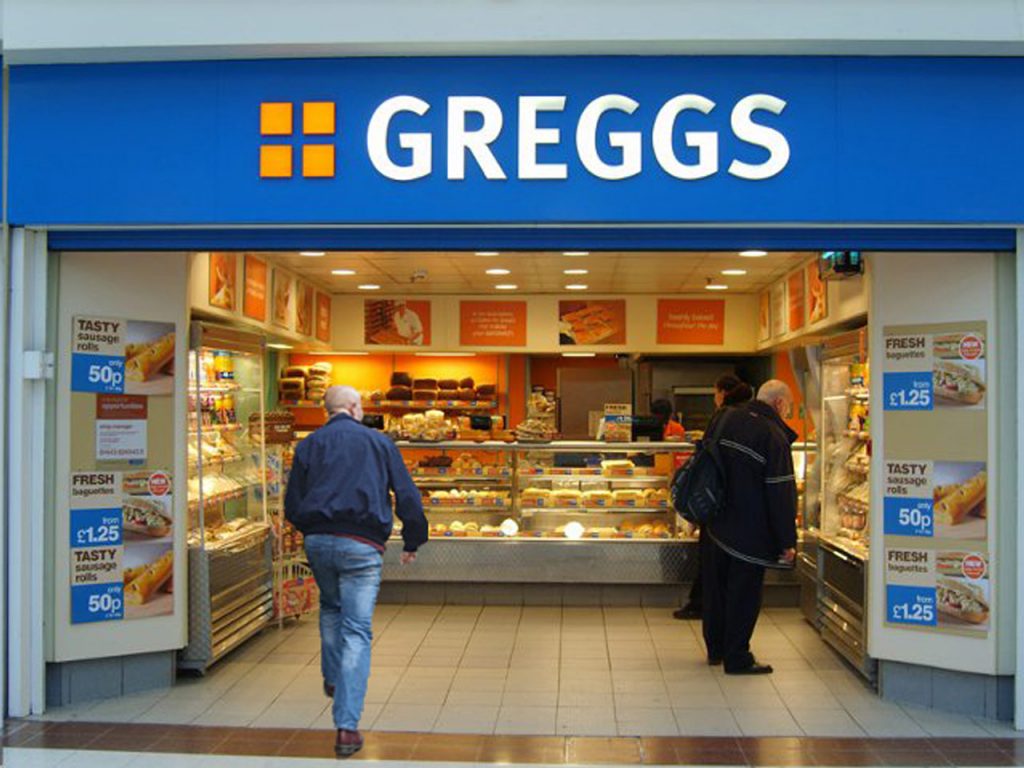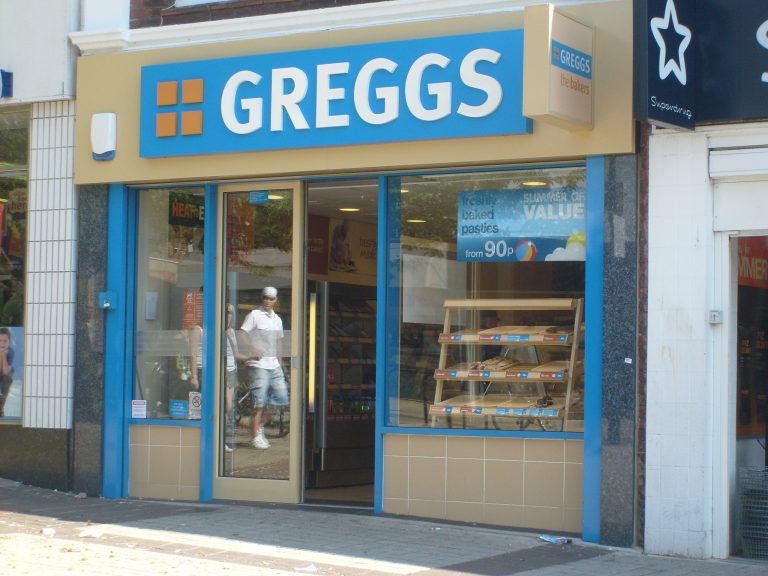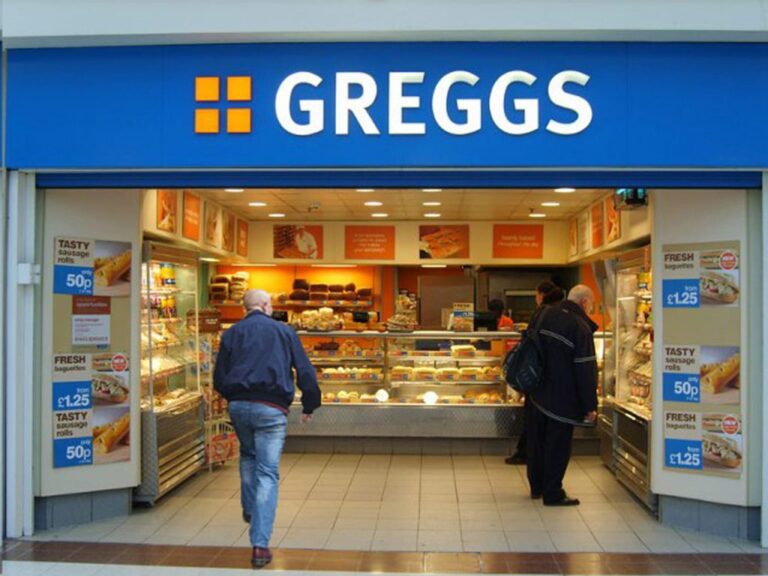Greggs plc (LON:GRG) has published its fourth annual sustainability report, which outlines the progress made towards its 2025 sustainability targets and sets out key focus areas for the year ahead.
Three-years into a five-year sustainability plan, Greggs has made significant progress on its ten commitments and has reached the following key milestones:
· 896 Greggs Foundation Breakfast Clubs now open, feeding over 62,000 children every school day
· Almost £650,000 of Greggs Outlet profits donated to the Greggs Foundation Community Grant programme to distribute to communities in need
· 97.1% of electricity usage across all operations came from renewable sources
· Maintained over 30% of range as ‘Healthier Choice’ products
· Over 500 shops (21% of the estate) feature Eco-Shop elements
· Published Ethnicity Pay Gap Report
Launched in 2021 and aligned with the ambitions of the UN Sustainable Development Goals, the Pledge focuses on ten commitments to help make the world a better place by 2025, centred on three key pillars; building stronger, healthier communities, making the planet safer, and becoming a better business.
Roisin Currie, Chief Executive at Greggs commented: “‘I’m delighted that, in key areas, we have already achieved what we set out to do by the end of 2025. We have significantly exceeded our target to make 30% of our products a healthier choice; and our responsible sourcing policies are firmly established ahead of schedule.
“However, we’re always determined to do better. We believe in setting ambitious targets that push us to think innovatively and collaborate effectively, even in demanding circumstances.
“It’s important we continue to look ahead and expand upon our goals beyond 2025. We will focus on what is material to our business in the years ahead, including our responsibility in promoting regenerative and sustainable agriculture. We acknowledge the pressing global issue of biodiversity loss and our suppliers and farmers play pivotal roles in addressing this challenge. Greggs is dedicated to supporting them in making a meaningful impact and driving positive change.
“Our commitment to ‘doing good’ is ingrained in our company culture, it’s part of our DNA and we take pride in the feedback from our colleagues who tell us our Pledge goals and progress makes them proud to work for Greggs.”
Greggs has assessed the progress made during 2023 against its sustainability targets and has set out clear targets to achieve by the end of 2025:
1. By the end of 2025: Open 1,000 school Breakfast Clubs, providing 70,000 meals each school day
· Progress in 2023: 896 Breakfast Clubs fed more than 62,000 children every school-day.
· 2024 target: 950 Breakfast Clubs, feeding 66,000 children every school day.
2. By the end of 2025: Create 25% less food waste than in 2018 and continue to work towards 100% of surplus food going to those most in need
· Progress in 2023: Greggs reduced the amount of food waste it creates in its manufacturing operations by a further 10% and increased food redistribution to 41.9%.
· 2024 target: Greggs will increase unsold food redistribution to 45% and will maintain cost of manufacturing waste at 0.20% of sales.
3. By the end of 2025: Have 50 Outlet shops providing affordable food in areas of social deprivation
· Progress in 2023: Greggs has 35 Outlet shops.
· 2024 target: Greggs will have 41 Greggs Outlet shops and, to increase collection opportunities for unsold food, will trial two light van collections.
4. By the end of 2025: 30% of the items on Greggs’ shelves will be heathier choices
· Progress in 2023: Maintained over 30% of its range as ‘Healthier Choice’ products.
· 2024 target: Greggs will continue to maintain its ranging principles to ensure 30% of its offering are ‘Healthier Choice’ items.
5. By the end of 2025: Progress towards Net Zero target by using 100% renewable energy across all of operations
· Progress in 2023: 97.1% of the electricity and 30% of the gas used across operations is from renewable sources.
· 2024 target: At least 60% of the gas used across operations will be from renewable sources and one major distribution depots will be converted to use HVO as a diesel replacement, covering around 2 million miles using a renewable fuel option. Greggs will also develop its policy to deal with non-renewable electricity usage in serviced locations.
6. By the end of 2025: 25% of shops will feature elements from Greggs’ Eco-Shop ‘shop of the future’ design
· Progress in 2023: Over 500 shops (21% of estate) feature Eco-Shop elements.
· 2024 target: 25% of shop estate will feature Eco-Shop elements and second Eco-Shop will be designed.
7. By the end of 2025: Use 25% less packaging, by weight, than in 2019 and any remaining packaging will be made from material that is widely recycled
· Progress in 2023: 87% of own brand packaging can be more easily recycled.
2024 target: All own brand packaging will be more easily recycled and Greggs will reduce the amount of packaging used within the supply-chain by moving to bulk-supply or reusable containers, where options are available.
8. By the end of 2025: Our workforce will reflect the communities we serve
· Progress in 2023: Published Ethnicity Pay Gap report and provided enhanced support for colleagues from an ethnic minority background to progress their career.
· 2024 target: Greggs’ core development programmes, aimed at supporting its potential future management colleagues, will be representative of the ethnic diversity in our regional talent pools.
9. By the end of 2025: Launch a Responsible Sourcing Strategy and report annually on progress towards its targets
· Progress in 2023: Greggs completed the mapping of soy in animal feed to determine sustainability status.
· 2024 target: 100% declared soy will be certified as sustainable and will trial the use of wheat from a regenerative farmed source in wholemeal bread production.
10. By the end of 2025: Secure and maintain Tier 1 in the BBFAW Animal Welfare standard
· Progress in 2023: Improved chicken welfare standards, with 65% at stocking densities less than or equal to 30kg/m2 and the remainder at less than or equal to 38kg/m2. All pigs are free from sow-stalls.
· 2024 target: Greggs will further improve chicken welfare standards, with 75% at less than or equal to 30kg/m2 stocking density and the remainder at less than or equal to 38kg/m2. Greggs will publish and implement its Chicken Welfare Standard.







































